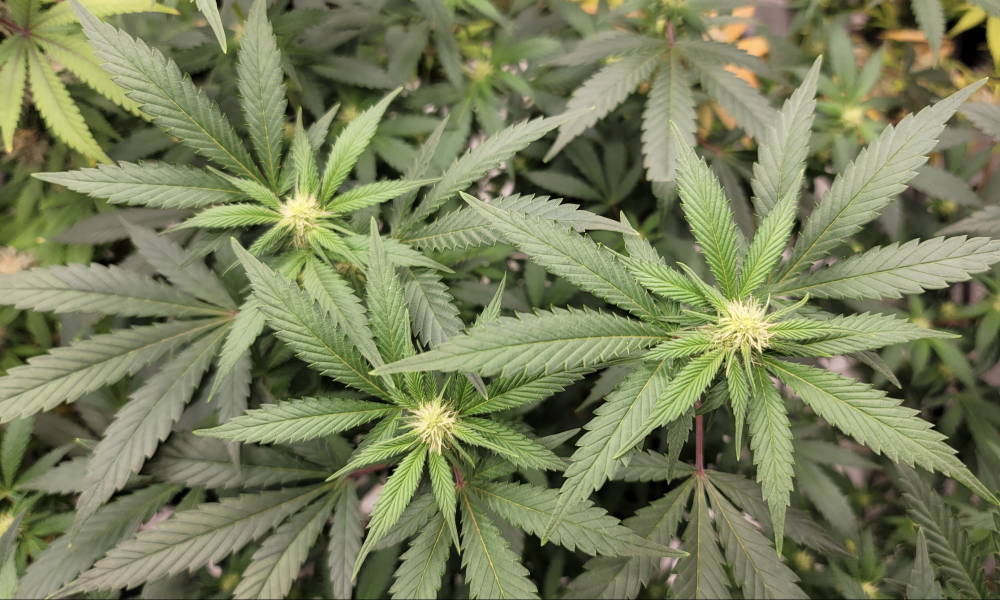Government officials from multiple countries, including the U.S., are meeting in Germany to discuss international marijuana policy issues as the host nation works to enact legalization.
Representatives of about 10 counties are convening for the second International Forum for Sustainable Cannabis Regulation (IFSCR) on Tuesday, with the main focus being on establishing a global framework for marijuana policy, while also giving participants an opportunity to speak about their own domestic developments.
Today, @BdB_SD_Blienert and @BMZ_Bund host the ‘2nd International Forum for Sustainable Cannabis Regulation’ in Brandenburg. The forum focuses on innovative and sustainable approaches in international cannabis policy. Details in this press release: https://t.co/Yf8gBwAKak pic.twitter.com/52WgOxLm2T
— GPDPD (@GPDPD_) November 21, 2023
“The old answers in cannabis policy are no longer effective,” Burkhard Blienert, Germany’s Commissioner for Addiction and Drug Issues, who is leading the forum, said in a press release.
“As in many other countries, more and more people in Germany have consumed cannabis despite bans and the black market substance has led to serious health problems for more and more of them,” he said, according to a translation. “Instead of ineffective bans, we in Germany will focus on consistent regulation, prevention, youth and health protection in the future.”
Germany’s national parliament, the Bundestag, was initially set to take up a national marijuana legalization bill for a final reading this month, but consideration was postponed as lawmakers address outstanding issues.
“A number of other states are breaking new ground with us in cannabis policy,” Blienert said. “It is important to me that we learn from each other and exchange ideas openly about what works and where there are difficulties.”
“We must also advocate for fair, sustainable and health-oriented framework conditions at the international level and coordinate closely with each other,” he added. “Because ultimately everything is connected: what happens in our drug policy has an impact on the situation in the cultivation and transit countries and of course vice versa.”
Beim 2. „International Forum for Sustainable Cannabis Regulation“: Wir müssen auch international für faire, nachhaltige und gesundheitsorientierte Rahmenbedingungen eintreten. Mehr Infos: https://t.co/6IkVR9hoOk pic.twitter.com/nbtOoOJZqx
— Sucht- und Drogenbeauftragter der Bundesregierung (@BdB_SD_Blienert) November 21, 2023
In addition to Germany and the U.S., the forum will also feature government representatives from Canada, Colombia, Malta, Mexico, the Netherlands, Switzerland, the Czech Republic.
Of those nations, Canada and Malta hav already enacted cannabis legalization. Lawmakers in Mexico have been working to end prohibition for the past few years after the country’s Supreme Court deemed the policy unconstitutional. And a bill to legalize cannabis is also advancing in Colombia.
After a recent visit to New York City, Colombian President Gustavo Petro remarked on the “enormous hypocrisy” of legal cannabis sales now taking place in the nation that launched the global drug war decades ago.
It’s not clear who is representing the U.S. perspective at the international forum, but the country is currently watching to see the results of an administrative review into federal cannabis scheduling as legalization spreads across more states. The expectation is that the federal review will maintain marijuana’s status as a prohibited drug, though possibly under a less restrictive classification following a rescheduling recommendation from the U.S. Department of Health and Human Services (HHS).
In Germany, meanwhile, members of the Bundesrat representing German states tried to block the government’s marijuana legalization proposal in September but ultimately failed.
The Bundestag, for its part, had already delayed its first debate on the legislation—held last month—by a week, ostensibly due to the conflict in Israel and Palestine.
The Bundestag’s Health Committee then held a hearing on the cannabis legalization bill this month.
The measure, spearheaded by Health Minister Karl Lauterbach, would allow adults to legally possess cannabis and cultivate a maximum of three plants for personal use. It would also create social clubs that could distribute marijuana to members. Officials have said a forthcoming second phase of legalization will eventually launch a pilot program for regulated commercial sales.
A group of German lawmakers, as well as the country’s drug commissioner, visited the U.S. and toured California cannabis businesses last year to inform their country’s approach to legalization.
The visit came about two months after top officials from Germany, Luxembourg, Malta and the Netherlands held a first-of-its-kind meeting to discuss plans and challenges associated with recreational marijuana legalization.
Top Wisconsin Senate Democrat Circulates Petition Calling For Marijuana Legalization Hearing In GOP-Controlled Legislature
Photo courtesy of Mike Latimer.
Read the full article here









